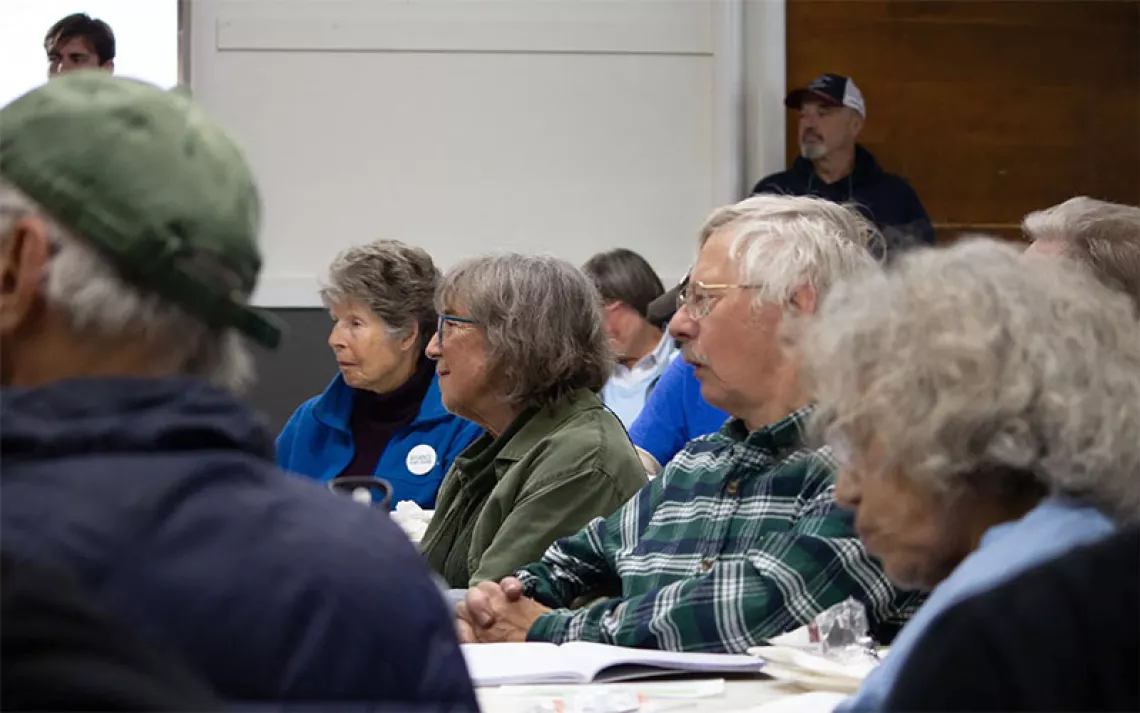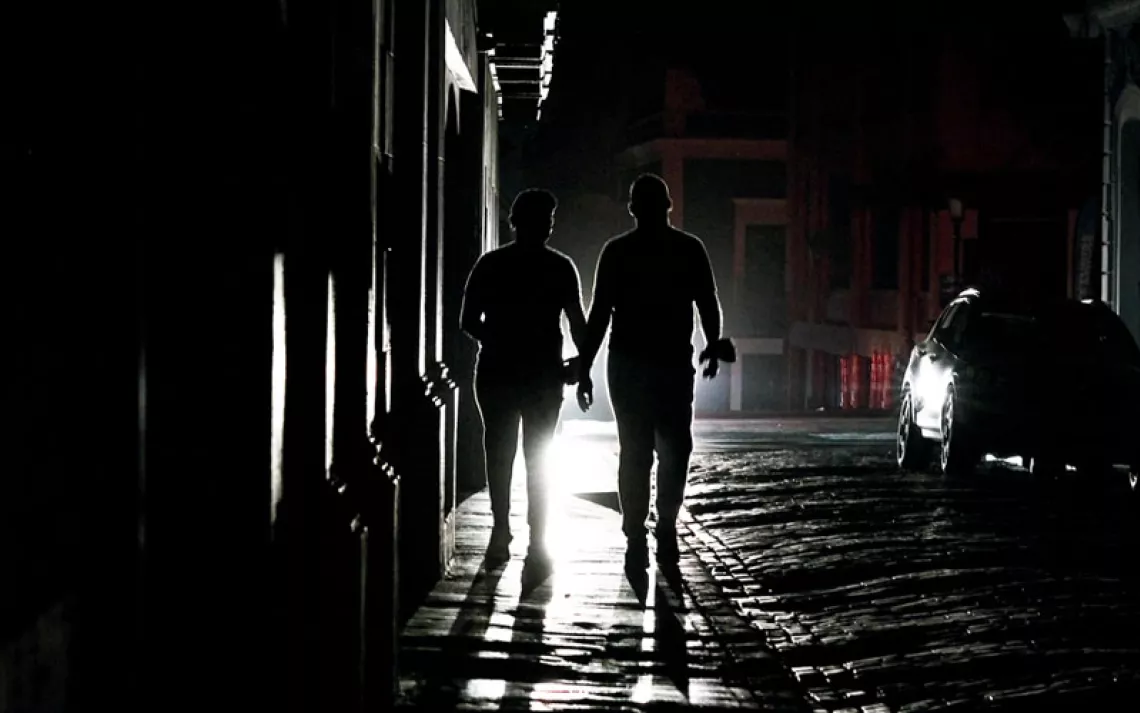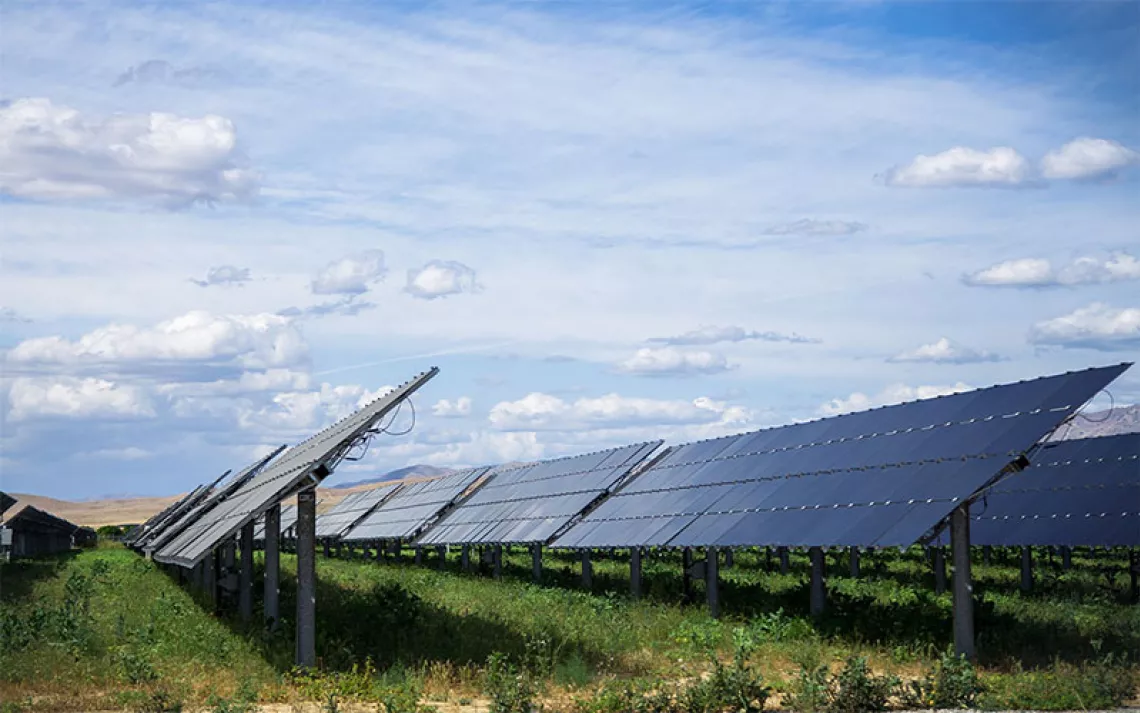Building a Better Gasifier
Tom Price of All Power Labs talks about his company's plans for spreading carbon-negative energy

Tom Price, director of strategic initiatives for All Power Labs | Photo by Martin Klimek/AP Images
Adapted from an interview with Tom Price by Kristine Wong.
I've been an activist my whole life. I get that from my mom. She's one of those quietly dignified people; my mom imagines how things could be and just puts her shoulder to the wheel and starts pushing. Over and over in my life, I've started new careers from scratch, but looking back, I see they're all connected to the same thing: working to take care of the planet and the people who live on it.
In 2007, I was in charge of trying to make Burning Man more "green." We organized an expo of emerging clean technologies. One entrant was the very first Tesla electric car. Another one was this crazy gasifier contraption developed by All Power Labs that turns organic waste into energy while sequestering carbon. The project actually started a few years earlier when the city of Berkeley cut off the power to a renegade art space and the artists needed a source of electricity—solar didn't provide enough power for welding. I was hooked on the idea and helped Jim Mason, one of the founders of All Power Labs, get the company off the ground.
I started in sales later that year. We wanted to make a meaningful impact on energy access and climate change. What we did is build a compact gasifier—about the size of a gasoline generator—that turned agricultural waste into a gas, then connect the gasifier to a regular engine and generator. It takes about two pounds of wood chips to make a kilowatt-hour of electricity. Burning biomass releases all the carbon stored in the waste into the atmosphere. But when that biomass is gasified, it captures a large portion of the embedded carbon, which means the total cycle is carbon negative.
Gasification is the only known form of carbon-negative energy. It's like the process for making charcoal—you're smoldering biomass in a low-oxygen environment. Combustible gas is released, and the process leaves about 10 percent of what you started with in the form of biochar—a material that is almost pure carbon. It can be repurposed as fertilizer. I use it to grow tomatoes at home and at All Power Labs.
Our gasifier is designed to extract energy from biomass—like wood chips, nutshells, and corncobs—that would have otherwise been burned because it's the least expensive way to get rid of it. People working at the intersection of agriculture and industry order our gasifiers when they have all this biomass and are trying to figure out what to do with it. We sell them to a wide range of private-sector users, aid groups, NGOs, and government electrification groups. We teach people which fuels are appropriate and how to operate the gasifier sustainably. The reason we make these machines as small as we do is so they can never consume more than an area can sustainably create.
Most people don't know it, but during World War II a million vehicles were converted to run on gasification because all the liquid fuel was being used in airplanes. So virtually overnight, European cars were converted to run on renewable wood instead of nonrenewable petroleum. We can make big changes, fast, if there's the will.
We've sold about 800 gasifier units, and they're being used all over the world, like in Liberia. Liberians have almost no electricity, and what little power they do have is expensive. We have a project at a technical training school where we turn scraps from rubber trees that no longer produce latex into clean energy used in the school's auto and woodworking shops. In Costa Rica, they use wood chips from dead coffee trees as well as the shells from the coffee beans. In Ghana, they use palm kernel shells. All this biomass would otherwise be burned.
This process is unfamiliar, and people often question what they don't know. But once they see it up close—see organic waste go in and energy come out, that is—their eyes light up, and they realize we're literally surrounded by fuel that's growing everywhere. After all, plants are just stored sunlight.
My daughter, Juniper, is nine years old. The thought of her growing up in a world without healthy forests or wetlands. . . . I can't think of anything else I should be doing.
 The Magazine of The Sierra Club
The Magazine of The Sierra Club



